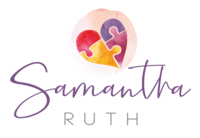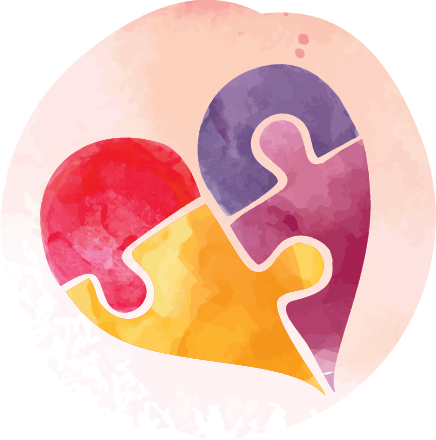Press











ABOUT Sam
SERVICES
Team Ruthless
EVENTS
GRIEFHAB™
PODCAST
RETREATS
shop
HEALING TOGETHER THROUGH THE HOLIDAYS - MAIN EVENT
HEALING TOGETHER - FOR A CAUSE: VIRTUALLY
HEALING TOGETHER - FOR A CAUSE: PILATES IN THE PARK - MICHIGAN
HEALING TOGETHER - FOR A CAUSE: VISIBLE - COLORADO
September 6-7
Jimtember Virtual Jubilee
blog
December 2nd - 8th / Metro Detroit AND VIRTUALLY
August 27th & 28th
August 30-31st
rUTHLESS IN THE ROCKIES
TEAM RUTHLESS
THE CONFIDENCE CONFERENCE
mOBILE rECOVERY dAY
Next event: September 10-23rd, Colorado
October 5-6th -
Virtual Event
September 30th, Castle Rock, Colorado
7 Groups Every week Plus Every Holiday
HEALING TOGETHER - FOR A CAUSE: Ride & ROAR - DALLAS
October 11 -12th
Stay Tuned!
FACES OF GRIEF
JOIN US
How Can We Create Better Support Options for Grieving Widows?
July 20, 2023
Let me start off by saying what I’ve said before: there are not enough grief support services available in this world. The support that is available is the responsibility of those grieving to find. It’s absurd! That’s why I created Griefhab – so that people can get the support they need AT the time of loss.
But today I want to talk more about the unique sort of grief that comes with the loss of a spouse. While general grief support groups are great, the complexities of becoming a widow can only be fully understood by other widows. We need better grief support options that cater specifically to these needs!
Losing my husband, Jim, changed my whole world. I didn’t just lose my life partner – I lost the life that we built together. I lost the future we planned. Family and friends did everything they could to support me, but there are some things that only other widows can understand.
Why Do Grief Groups Matter?
Grief groups are an essential part of the healing process after losing a loved one. You need to be able to talk through your experiences of grief with others who get it! Family and friends play a role in helping you heal, but if they haven’t been through this kind of grief themselves, they don’t understand the emotions you’re feeling. Talking to others who are grieving means that you can talk about all of the complicated feelings that you have – The sadness. The anger. The confusion. The depression.
Why General Grief Groups Aren’t Enough for Widows
When you lose a partner, the experience has layers that only make sense to other widows. The entire framework of the life that you built relies on your partner’s presence, even if you don’t know it until they’re gone. You experience loneliness and isolation that are totally different from anything you experienced before the loss of your partner.
Single friends stop inviting you out. Couples worry that you will feel uncomfortable or sad around them, so they stop inviting you out, too. Events are full of well – meaning people who want to help but aren’t sure what to say – sometimes they say too much, and sometimes they awkwardly avoid you completely. And on top of it all, the one group of people who can actually understand what you’re going through has no way to connect with you.
We need grief groups focused solely on supporting the grief of widows. We need to provide space for widows to grieve in ways that are as complex as the loss they’re facing.
But beyond that, we need to provide more dynamic opportunities for widows to connect. Yes, grief meetings are important. But widows would benefit from other social events geared toward them.
What could that look like if we decided to provide widows – only grief support spaces?
Rethinking Grief Support for Widows
Let’s get creative in the support that we provide for widows.
Art helps many people process their emotions. So why not offer a widows – only painting class, pottery class, or art museum trip?
Some people heal through music. Maybe a trip to see a local performance would help widows get out and enjoy the things they once loved with other widows – or maybe it’s an opportunity to experience something new with a group of people who are also feeling untethered after their loss.
Sometimes getting away from life is an important step in the healing process. Maybe we need more retreats geared toward widows.
Ultimately, the point is that we need to offer both grief groups for widows to talk through their loss and more dynamic opportunities to meet with other widows.
Other Ways to Support the Grieving Widows in Your Life
How else can you support your loved ones as they grieve their partners?
The most important thing that you can do is to just be there. The loneliness that comes with losing a partner is real, and it touches every aspect of your loved one’s life. We’ve all been through a breakup – remember times that you wanted to be alone, while there were other times when you just wanted some company? This is unbearable by comparison. Make yourself available, check in, and remind them often that you care.
Be open to hearing everything that your loved one is feeling. Widows experience complicated emotions, and they’re often all twisted together. Give them space to cry; to laugh; to yell if that’s what they need. And come back to those conversations later. Grief comes in waves, and you may find that their emotions come back up months or years later. It won’t always be comfortable – there will be times when they want to talk about their partner more than you do. Be patient.
Don’t wait to be told how they’re feeling or what they need – open the door to uncomfortable conversations. Tell them that you’re willing to do whatever they’re up to doing, not just what you’re used to usually doing together. Let them know that they don’t have to entertain you or get dressed up. Basic tasks can be exhausting and knowing that you accept them where they are now takes away a lot of pressure.
Invite your widowed loved one into new parts of your life. When they had a partner, they had less time to invest in certain areas of your relationship. Now that they’ve lost that partner, all of their usual life activities are thrown out of balance. Invite them out to dinner; invite them to your next movie night or game night; ask them to join you for book club; invite them to your kid’s birthday party, or to your next holiday get-together; ask them if they want to join your daily walk. And continue asking even if you get no after no. The invitation shows how much you care.
Encouragement for Widows
If you are a widow struggling to get through grief, know that you are not alone.
As I work to change the conversation around grief, I am also creating ways for you to connect with others who are grieving. Griefhab is helping so many people. But right now it’s all virtual – and we need more in – person opportunities for widows to grieve together! If you are searching for an opportunity to get away from life with other widows, Camp Widow is one of the few available options.
Give yourself grace as you work through your grief. And start having the hard conversations with your loved ones – let them know how you’re feeling and what you need. If that’s overwhelming, reach out and we can discuss it together!
If you need professional support as you navigate grief, you can always email me, text, or book a call.
And if you haven’t already, join the Griefhab Community on Facebook for unlimited support, resources, and more!
Want to help me get Griefhab out to the world? Write in a vote for “Samantha Ruth – Griefhab” in The Best of NoCo 2023 here! This isn’t about winning an award. It’s about changing the conversation around mental health and helping as many people as possible!
Leave a Reply Cancel reply
120 E. Front St. Loft 2 Traverse City MI 49684 &
77 Monroe Center St Ste 600 Grand Rapids MI 49503
phone : +1 (231)707-0707


Donate TO GRIEFHAB™
Donate today to help make our events and services free for everyone.
You can also donate directly to support a specific client in need.
four
three
info & Investment
two
THE FOUNDER
one
fIVE
GRAB A COPY OF MY
BOOKS & MERCHANDISE
four
three
info & Investment
two
THE FOUNDER
one


fIVE
GRAB A COPY OF MY
BOOKS & MERCHANDISE










HEALING TOGETHER EVENT
EVENTS
four
three
info & Investment
two
THE FOUNDER
one
fIVE
GRAB A COPY OF MY
BOOKS & MERCHANDISE
four
three
info & Investment
two
THE FOUNDER
one





fIVE
GRAB A COPY OF MY
BOOKS & MERCHANDISE










FACEBOOK FAMILY
GRIEFHAB™ SERVICES
FACES OF GRIEF
Our Press Features
THE BE RUTHLESS SHOW
two
three
Recent Articles
one





Coming in September! Stay Tuned.
December 2nd -8th / Metro Detroit AND VIRTUALLY
August 25th
August 30-31st
October 11 -12th
Stay Tuned!










four
three
info & Investment
two
THE FOUNDER
one





fIVE
GRAB A COPY OF MY
BOOKS & MERCHANDISE
four
three
info & Investment
two
THE FOUNDER
one





fIVE
GRAB A COPY OF MY
BOOKS & MERCHANDISE









